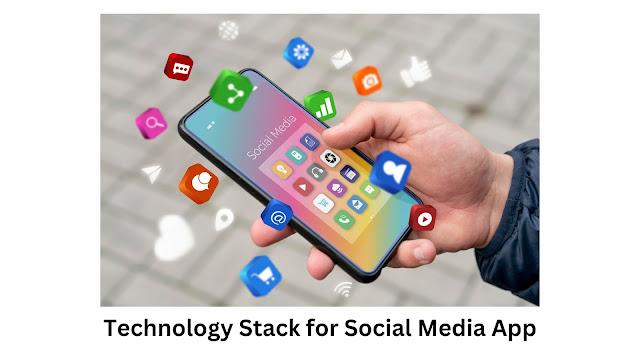Choosing the Right Technology Stack for Your Social Media App
In the realm of social media app development, the selection of an apt technology stack stands as a pivotal choice, one laden with the potential to profoundly influence the app's performance, scalability, and future trajectory. This importance is underscored particularly when partnering with a specialized social media app development company.
Understanding the Technology Stack:
A technology stack is a combination of software tools, frameworks, programming languages, and infrastructure that work together to build and run your application. For a social media app, the technology stack encompasses both the frontend and backend components.
Frontend:
User Interface (UI) Framework: Selecting an appropriate UI framework is crucial for creating an engaging and responsive user interface. Popular choices include React, Angular, and Vue.js. These frameworks facilitate the creation of dynamic and interactive user interfaces.
Mobile Development: If you plan to have a mobile app, consider using React Native or Flutter for cross-platform development. These frameworks allow you to build apps for both iOS and Android using a single codebase.
User Experience (UX): Implementing a seamless and intuitive user experience is essential. Tools like Figma or Sketch can aid in designing visually appealing user interfaces, while user experience libraries like Material-UI or Ant Design offer pre-built components for consistent design.
Backend:
Programming Language: The choice of programming language depends on your team's expertise and the scalability requirements of your app. Python, Ruby, Java, and Node.js are popular choices. Node.js, with its non-blocking architecture, is often favored for real-time applications like social media.
Web Framework: Frameworks like Django (Python), Ruby on Rails (Ruby), Spring Boot (Java), or Express (Node.js) provide a structured approach to backend development, simplifying tasks like routing, database interaction, and authentication.
Database Management: Opt for a database system that can handle large volumes of data and supports real-time updates. Relational databases like PostgreSQL or MySQL, as well as NoSQL databases like MongoDB, are commonly used for social media apps.
Caching: To enhance performance, consider implementing caching mechanisms using tools like Redis or Memcached. Caching can significantly reduce the load on your database by storing frequently accessed data in memory.
Real-time Functionality: Social media apps often require real-time features like notifications, messaging, and live feeds. WebSocket technology, often integrated through libraries like Socket.io, enables real-time communication between the server and clients.
Infrastructure:
Hosting: Choose a reliable hosting provider such as AWS, Google Cloud, or Azure. Cloud platforms offer scalability, security, and a range of services to support your app's growth.
Content Delivery Network (CDN): A CDN enhances the app's performance by distributing content across multiple servers worldwide, reducing load times for users. Cloudflare and Akamai are popular CDN options.
Containers and Orchestration: Embrace containerization with Docker and orchestration tools like Kubernetes. This ensures consistent deployment and scalability, allowing your app to handle varying traffic loads efficiently.
Security:
Authentication and Authorization: Implement robust authentication mechanisms, such as OAuth or JWT, to secure user accounts and data access.
Data Encryption: Utilize encryption protocols (SSL/TLS) to safeguard data transmission, and consider end-to-end encryption for sensitive user interactions.
Firewalls and Intrusion Detection: Employ firewalls and intrusion detection systems to protect against cyber threats and unauthorized access.
Conclusion:
In the dynamic realm of social media app development, choosing the right technology stack is akin to laying a strong foundation for a skyscraper. As you embark on the exciting journey of creating your social media app, remember that the success of your venture hinges on assembling a talented team.
Hiring a skilled mobile app developer who is well-versed in your chosen technology stack is akin to having a master craftsman shape your vision into reality.
When you hire mobile app developer, you're not just adding a resource; you're enlisting a partner who understands the intricacies of mobile app development. Their expertise will guide you through the intricate decisions of frontend frameworks, backend technologies, database management, and user experience.
Read Also:
Overcoming Challenges in eLearning App Development
How To Build Custom mHealth App
6 Factors That Impact The Cost To Create An App
Unique Mobile App Ideas for Startups




Comments
Post a Comment